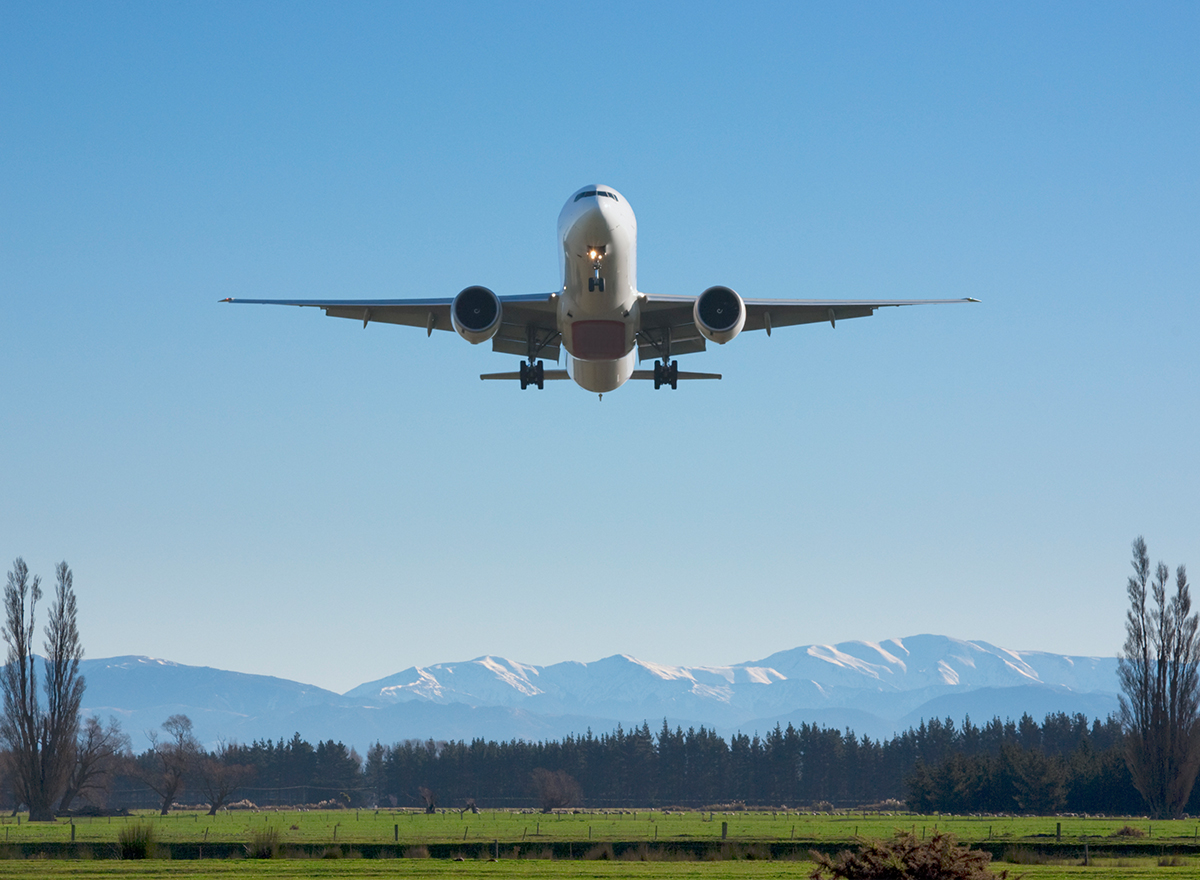A Working Holiday in New Zealand: Getting Work Ready – Everything I Wish I’d Known

Getting yourself organised for a working holiday looks a little different from getting yourself organised for a normal holiday – or at least it should! Imagine you’re packing for that exciting week away in Ibiza…perhaps you’ll plan your outfits, look up a few nice restaurants, and do a quick Google to figure out where you can get cash out. If you even think about how you’ll get in touch with your friends and family at all, you’ll probably assume your phone from home will work in Spain.
Packing and organising for 12+ months on the other side of the world requires a lot more research, planning and energy. If you are organised, you’ll be able to maximise your time and enjoyment when you arrive, and save yourself a few logistical headaches. The good news for you is that my experiences of getting organised and work ready for a working holiday in New Zealand, can help you to avoid the pitfalls and problems that some lesser-organised people may encounter. Read on to find out exactly what you need to do to get work and life ready for a working holiday in New Zealand.
Visa sorted?
Naturally, the first thing you are going to want to do is ensure you are entering New Zealand legally. We don’t want any massive holiday whoopsies, where you spend hours at immigration at the airport, before being sent home for not having the right stamp in your passport! The good news is that young people of many nationalities are eligible for a Working Holiday Visa in New Zealand, and, it’s easy to apply. For the full rundown on Working Holiday Visas, I recommend going back and reading my first blog in this series.
Next steps after you have a visa
I am going to assume for the purposes of this blog that you’ve already got your visa sorted, your plane tickets are booked (yippee!) and you’re wondering ‘now what?’. It’s the ‘now what?’ that I will cover in this blog.
Depending on your visa, you’ll likely have 12 or 23 months in beautiful New Zealand, and that might sound like a long time. However as the saying goes, time flies when you are having fun, and let me assure you, you’ll be having fun once you get here!
Get yourself temp-work ready
Don’t waste precious working or travel time on administrative tasks that you could have sorted out before you get here. The goal is to hit the ground running. If you are here in NZ on a working holiday visa, you’ll be looking for temp work (read more on that here and here). The pace of temp work– applying for it, interviewing, starting the job – can be really quick. For example, you might check in with your Recruitment Consultant on Thursday (more on that process next week), and by Friday, they’ve got a job for you, that starts the following Monday! This is truly ideal, because once you arrive in Aotearoa, you’ll want to quickly start earning money to fund your life and travels. But it does mean you don’t have time for messing about.
There are a few things you’ll need to make it quick and easy to begin working, and earning money in Aotearoa:
Proof of Address
‘Proof of address’ is a letter or document that has your full name and New Zealand address on it, which is essentially evidence that you have a place to live, and includes where that place is located in Aotearoa.
Why you need Proof of Address
It’s really important you obtain Proof of Address, because it’s required to open an NZ bank account, which you’ll need in order to have your wages paid (generally, employers won’t pay into an overseas account) AND to get a tax number, which in New Zealand is called an Inland Revenue Department (IRD) number.
What qualifies as Proof of Address?
You need something official. Unfortunately it’s not as easy as writing where you’ll be living on a piece of paper! There’s a range of documents that are accepted, usually things like a recent power, gas or water bill, a tenancy agreement, or a document issued by an NZ Government agency. Individual banks have their own guidelines, so you’ll need to check with your chosen bank to find out exactly what you will need.
How do I get ‘Proof of Address?’
Switched-on readers will probably have already anticipated the potential issues with getting proof of address when you are not yet in the country. Yes, it can be tricky!
Here’s my top tip: if you have booked accommodation for when you arrive, for example, at a hostel or backpackers, an Air BNB or hotel, you can contact your booked accommodation and politely request a letter which includes the address and states that you’ll be ‘living’ there. Not all accommodation will provide this, and sometimes the bank may not accept it as proof of address, but – often they do, so it’s the best place to start.
If you’ve got other plans (…or no plans) then you might have to tackle this step when you get here – but be mindful that you WILL need it at some point.
New Zealand Bank Account
Sorry folks, you cannot use your bank account from back home. For the duration of your stay, if you want to work and get paid, then you need to have your own personal account, through a bank in New Zealand.
How do I get an account?
As long as you have your working holiday visa sorted, most of the Kiwi banks will allow you to apply 90 to 180 days before you arrive. Mark it in your calendar if you are coming in 2023 because that’s not too far away! I always highly recommend this step to the people I know, because I honestly think it makes life so much easier.
Activate your bank account
Once you are here in New Zealand, part two of the account opening process is usually to visit your local branch, in order to verify your identify, and activate your account. This step is essential for ensuring your account is ready to use. It’s also important to remember that many of the banks will require you to book an appointment to activate your account, you can’t just turn up and hope for the best, so check if yours requires an appointment.
Putting money in your account before you arrive
Most banks will allow you to deposit money into your account before you arrive, there’s usually a minimum deposit amount required. Note that you won’t be able to withdraw any of that money until your account is activated, see the point above! (and put that in your diary too).
Which bank do I choose?
That’s up to you, my friend. There are a number of banks here in New Zealand and I’ll leave you to figure out the pros and cons of each.
Below is a list of the leading banks, with links to their overseas account opening options. Some have easier processes to open than others.
- BNZ (submit application online – no appointment needed, just arrive in branch)
- ANZ (submit application online – book appointment to activate)
- ASB (complete online enquiry form – book appointment to activate)
- Westpac (print and complete application form, email the form and book appointment to activate)
My not-so-secret top tip is that from what I have heard, ANZ are the easiest bank to open an account with. They accepted a letter from the landlady at the AirBnB as proof of address. Please investigate for yourself because things do change.
Inland Revenue Department (IRD) number
An IRD number is similar to the NHI number in the UK, the Tax File number in Australia or the Personal Public Service Number (PPS No) in Ireland. It’s an eight or nine digit number, issued by the government, that is unique to you. If you earn income when you are here in Aotearoa, then you’ll need one of these. If you don’t, you’ll be taxed at the highest possible rate – which is definitely worth avoiding!
How to get an IRD number as a new arrival
You can apply for your IRD number as soon as you arrive, it’s free to get one, and easy to apply online. Your application will be processed on average within eight to ten working days. Below is the link for if you’ve just arrived, and need to apply for your IRD:
New arrival to New Zealand – IRD number application
IRD Timing tips
You can’t get your IRD number until you have a fully-functioning bank account, so I recommend that you make sure you sort that out before you arrive, and then schedule and complete part two, activating your account, in the first few days that you are in the country, to make it all smooth sailing.
What you need to apply
Assuming you have a working holiday visa, you’ll need:
- your passport details
- your Immigration New Zealand Application Number
- your most recent overseas tax number (if you have one)
- an NZ bank account, showing your name and account number, or customer due diligence (CDD), if you have one.
Can I apply for IRD BEFORE I arrive?
Bonus points to you if you want to be extra organised – yes, you can complete your IRD request before you arrive, as long as you have already opened your NZ bank account, and are happy to provide some extra details. There’s a different application form to use if you are currently overseas, the link is below:
Living overseas – IRD number application
For overseas application, you’ll need each of these:
- photo identification (ID), such as a passport
- proof of address, for example, a letter from your utilities company
- tax identification number from your home country or territory
- proof of reason for applying for IRD number, for example, working here or buying property here
- a fully functioning New Zealand bank account or Customer due diligence – IR997 form
Mobile Phones in NZ
I’m assuming you want to stay connected with family and friends back home, as well as newer friends and fellow travellers; that you want to be able to arrange interviews and talk to potential employers, as well as schedule future travel plans and activities? Yes? Then you’ll of course need a mobile (cell) phone. It’s not going to be economical to use your home-country plan, so the simplest thing to do is to use your own phone (handset) from home, and get an NZ sim card.
There are a number of phone providers here in New Zealand, offering a wide range of packages. Below is a list of common providers, with links to their websites:
Mobile phone Plan terminology
There’s a whole language around what kind of plan you get so I’ve compiled this easy guide for you:
Prepay: This is a type of phone plan that has no contract. You pay as much or as little in advance towards your phone bill. For more info on Prepay, read this article, 8 Reasons to Choose a Prepay Plan.
Plan: It is a general term for the offer from the provider, that you will be using to use your phone. It is often monthly, but can also be weekly.
Pay as you go: Paying per text, call, data usage at a flat rate. It is the opposite of a “plan”.
Practical steps to get your sim card and plan
You can usually organise a sim and plan online. The other easy option is to visit them in person – there’s usually a physical store in whichever city or suburb you are located in, and they often have a storefront in your local mall. I think it’s a good idea to make this one of your first ‘once I land in NZ’ jobs, and get connected straight away.
Your work-ready-check list
As you’ll see from this blog, it actually won’t take too much focus and admin to get yourself set and ready to work in NZ, IF you are organised and know what to do – which you do now!
To make things extra easy, you can check things off as you go.
- Working holiday Visa
- Proof of Address
- Bank Account applied for
- Bank Account ‘activated’
- IRD number
- NZ Mobile phone connection
Finding a job in New Zealand
You’re all sorted and ready to find work? Congratulations! For all the info you need on the actual process of finding a job, you’ll need to wait until I hit go on next week’s blog ‘Ten ways to find a job in New Zealand’. See you then!

